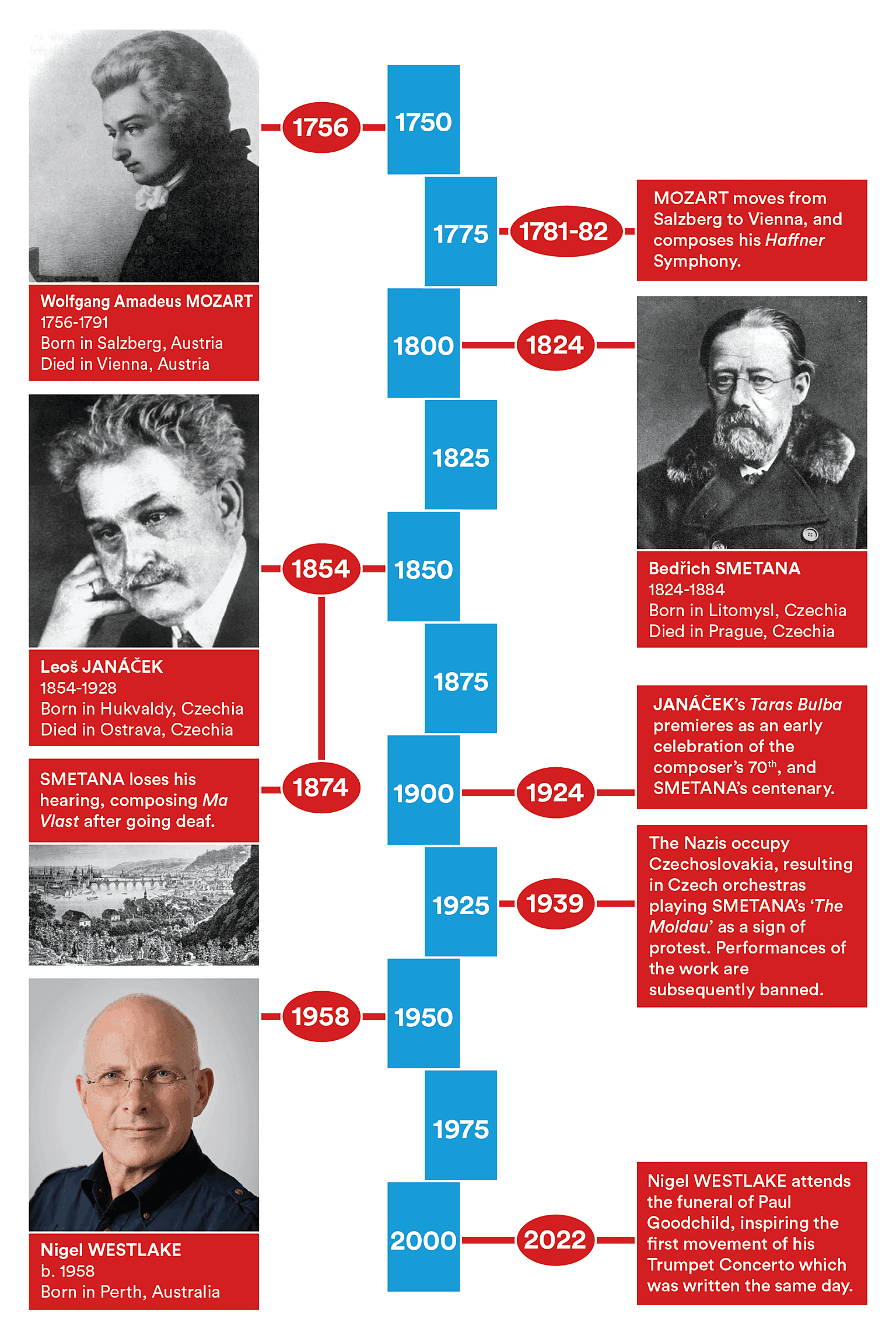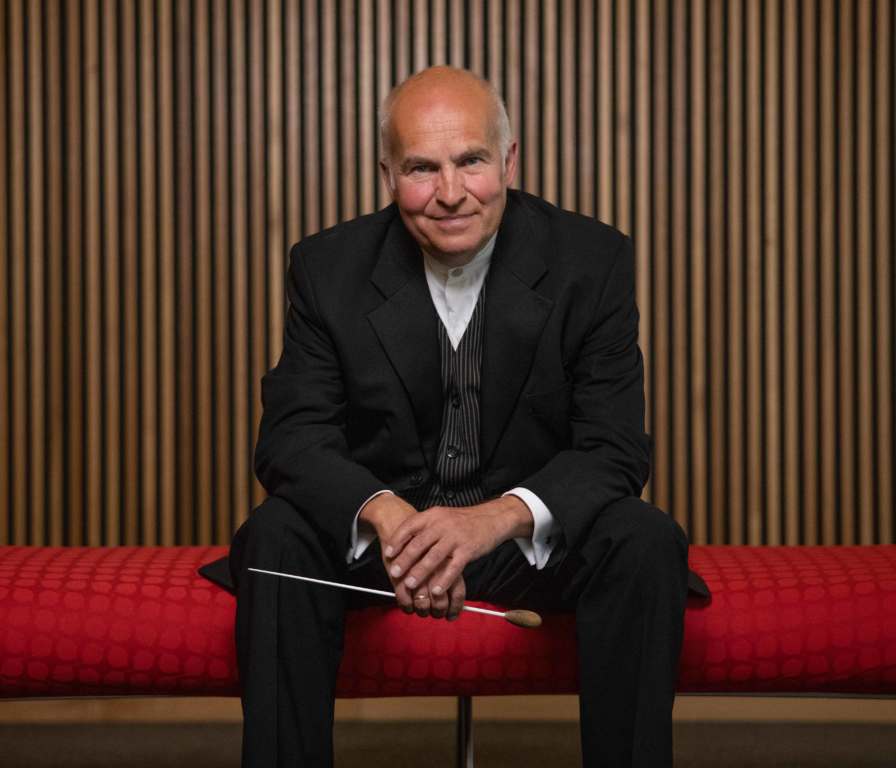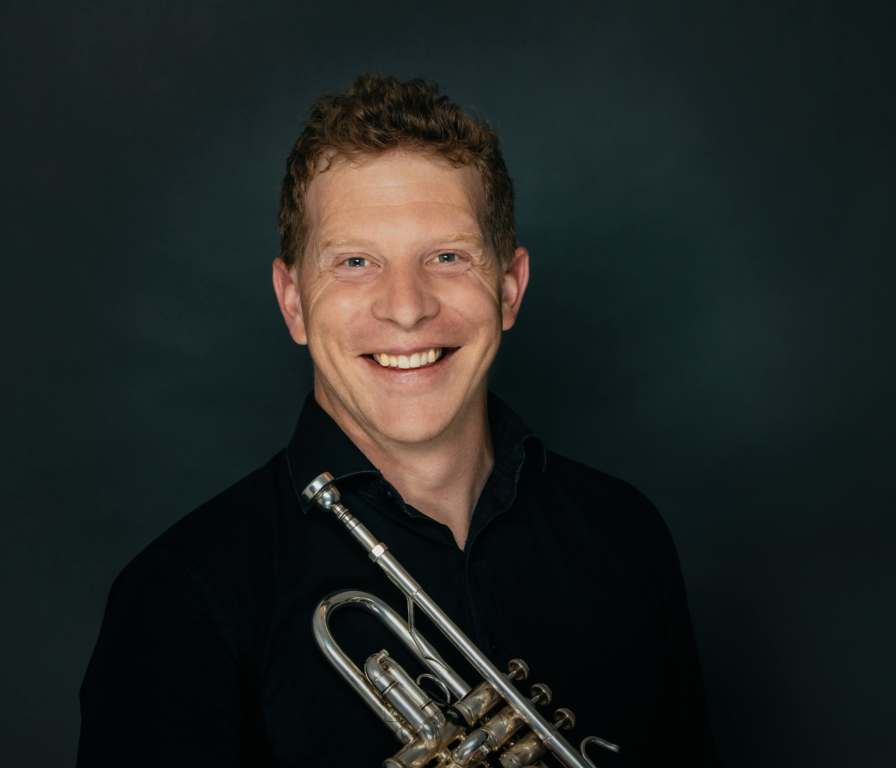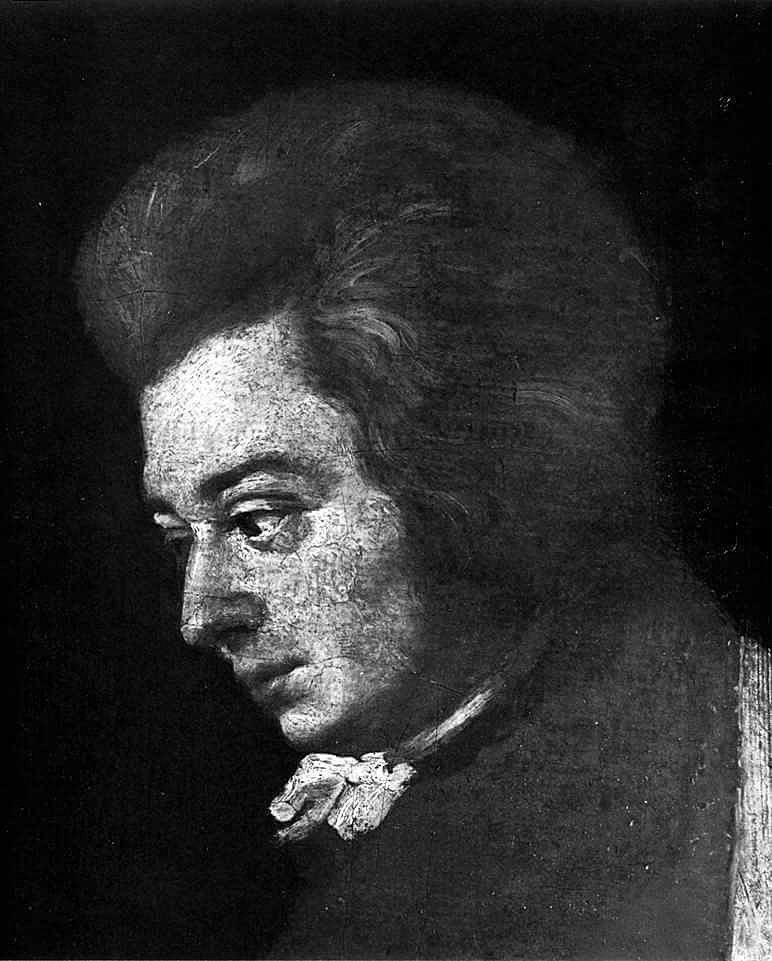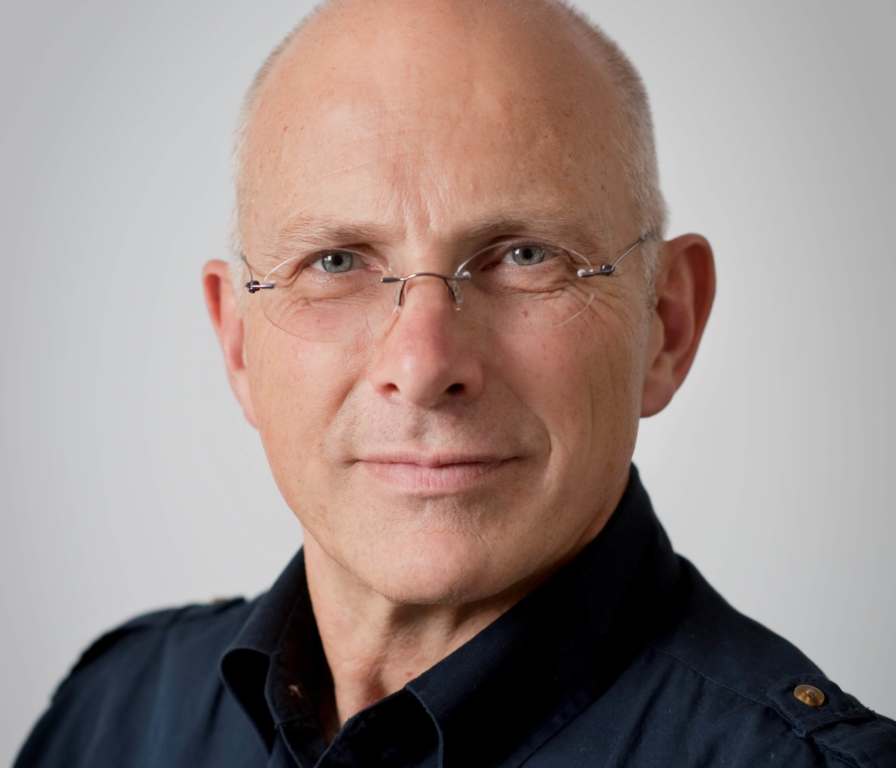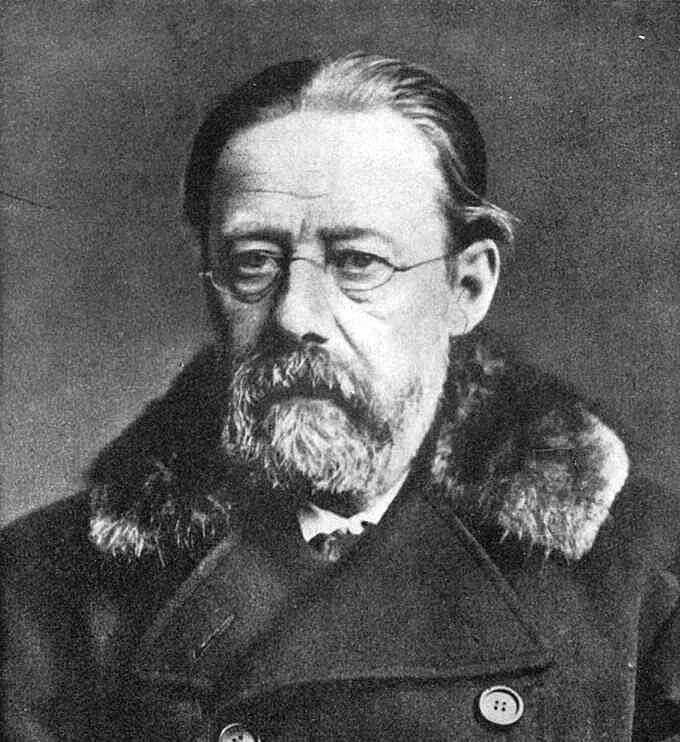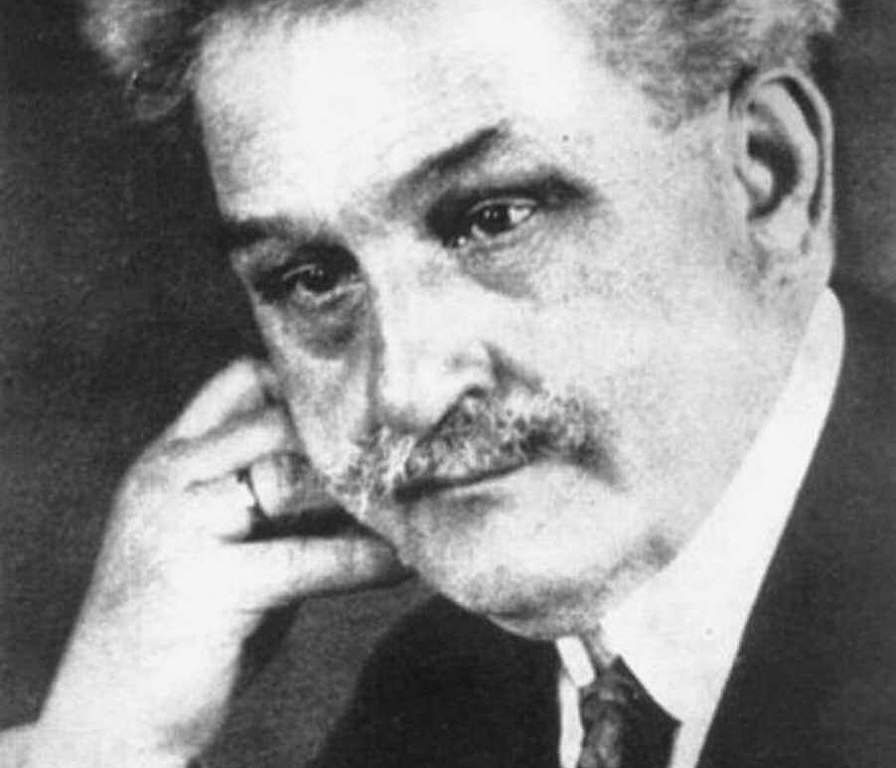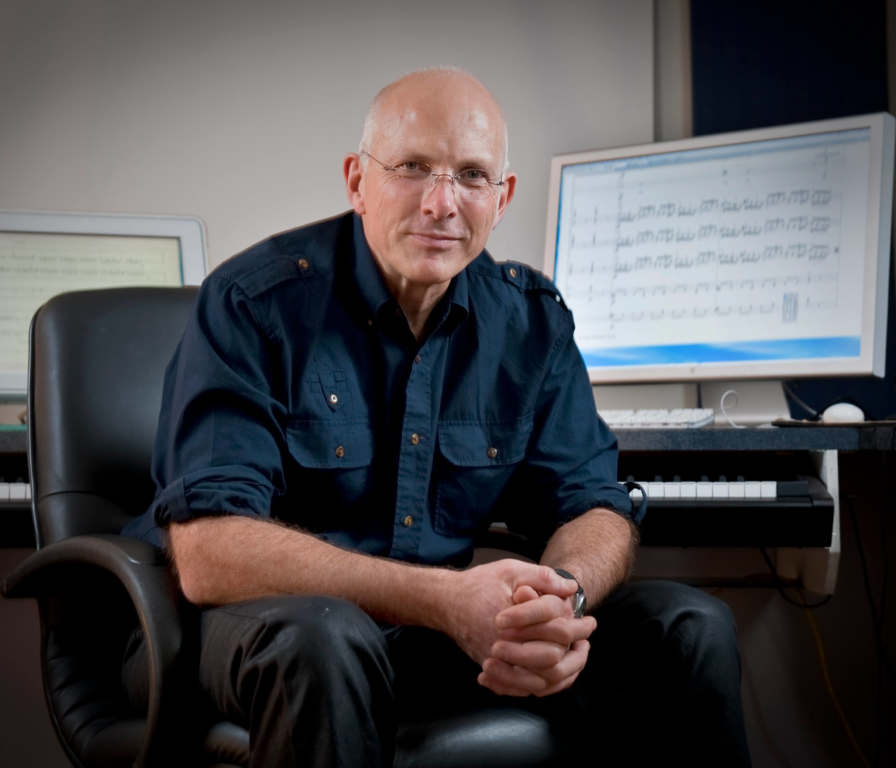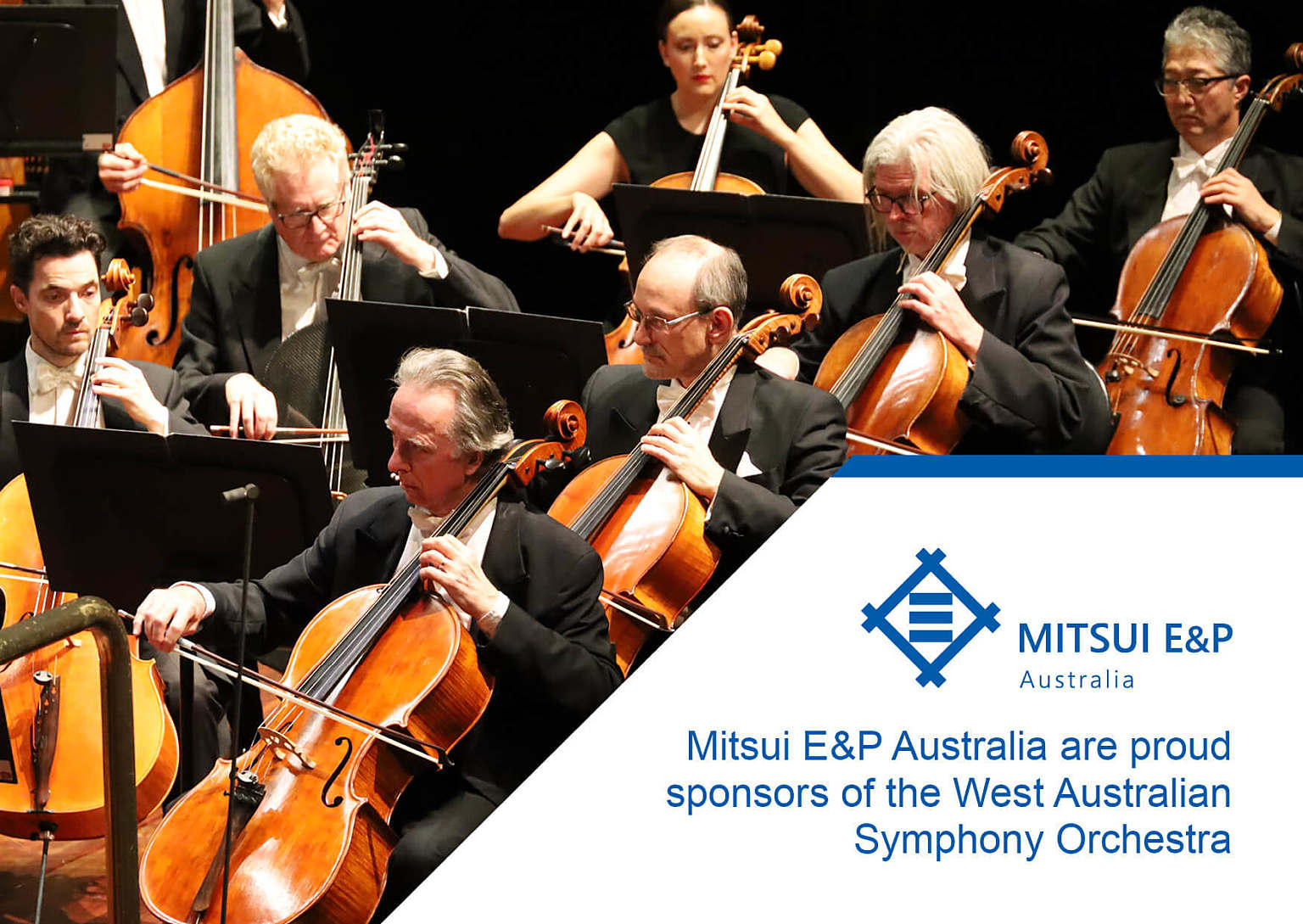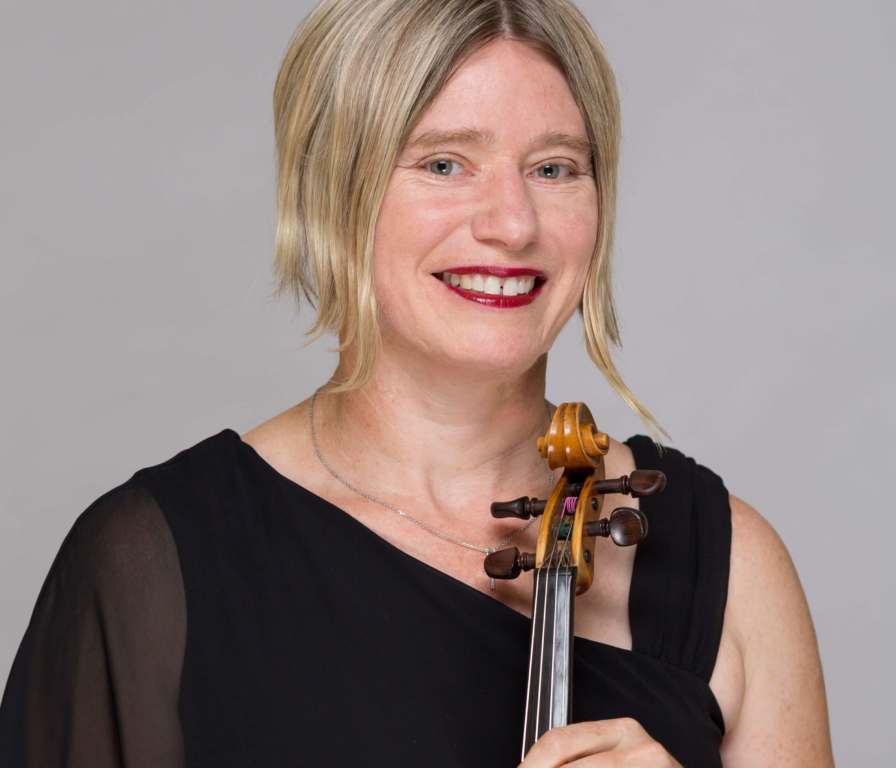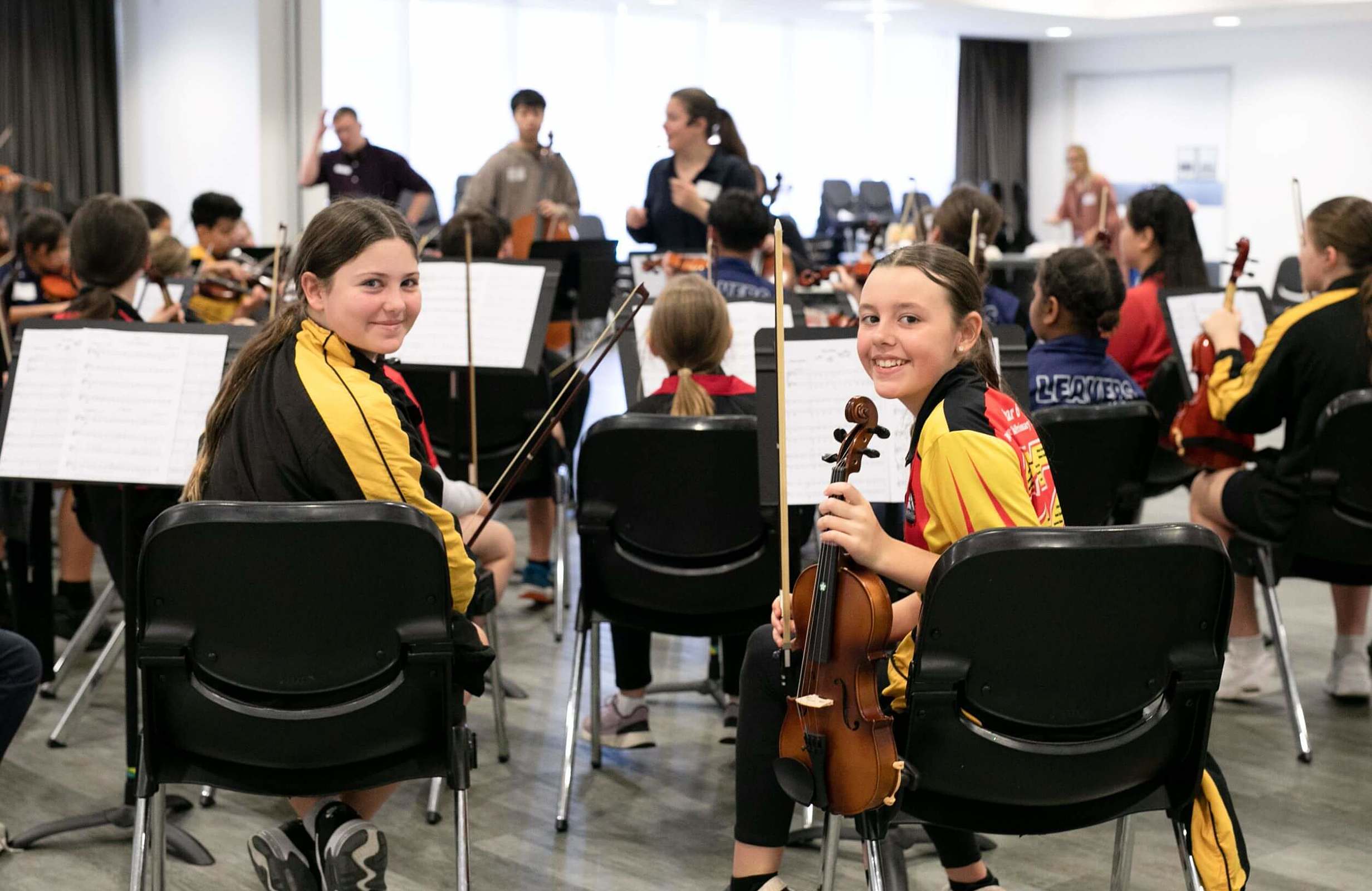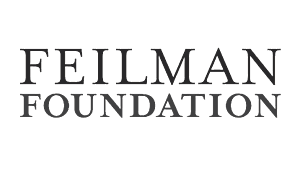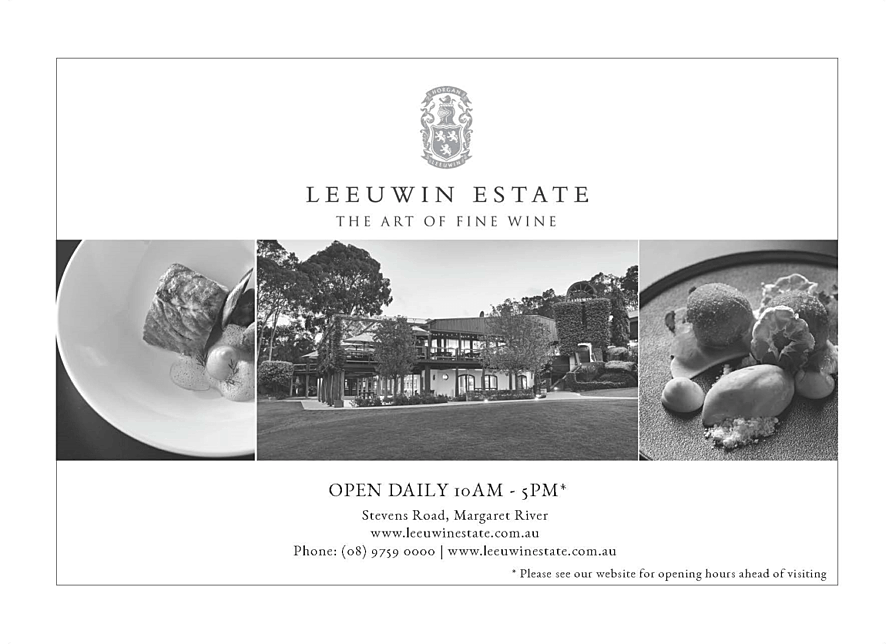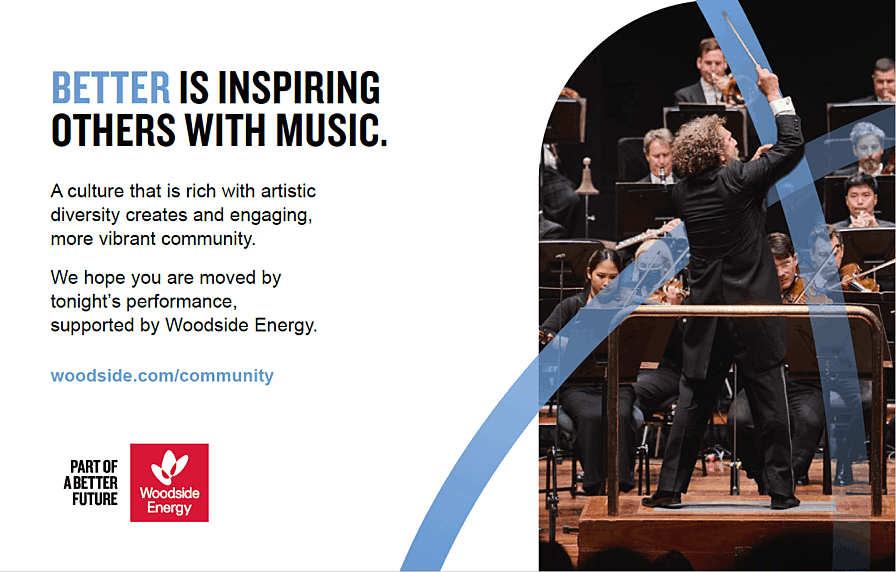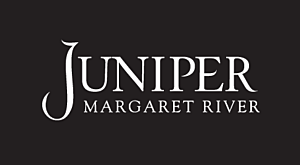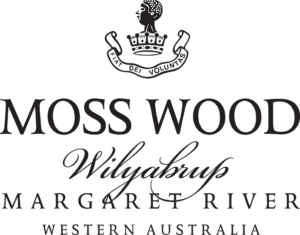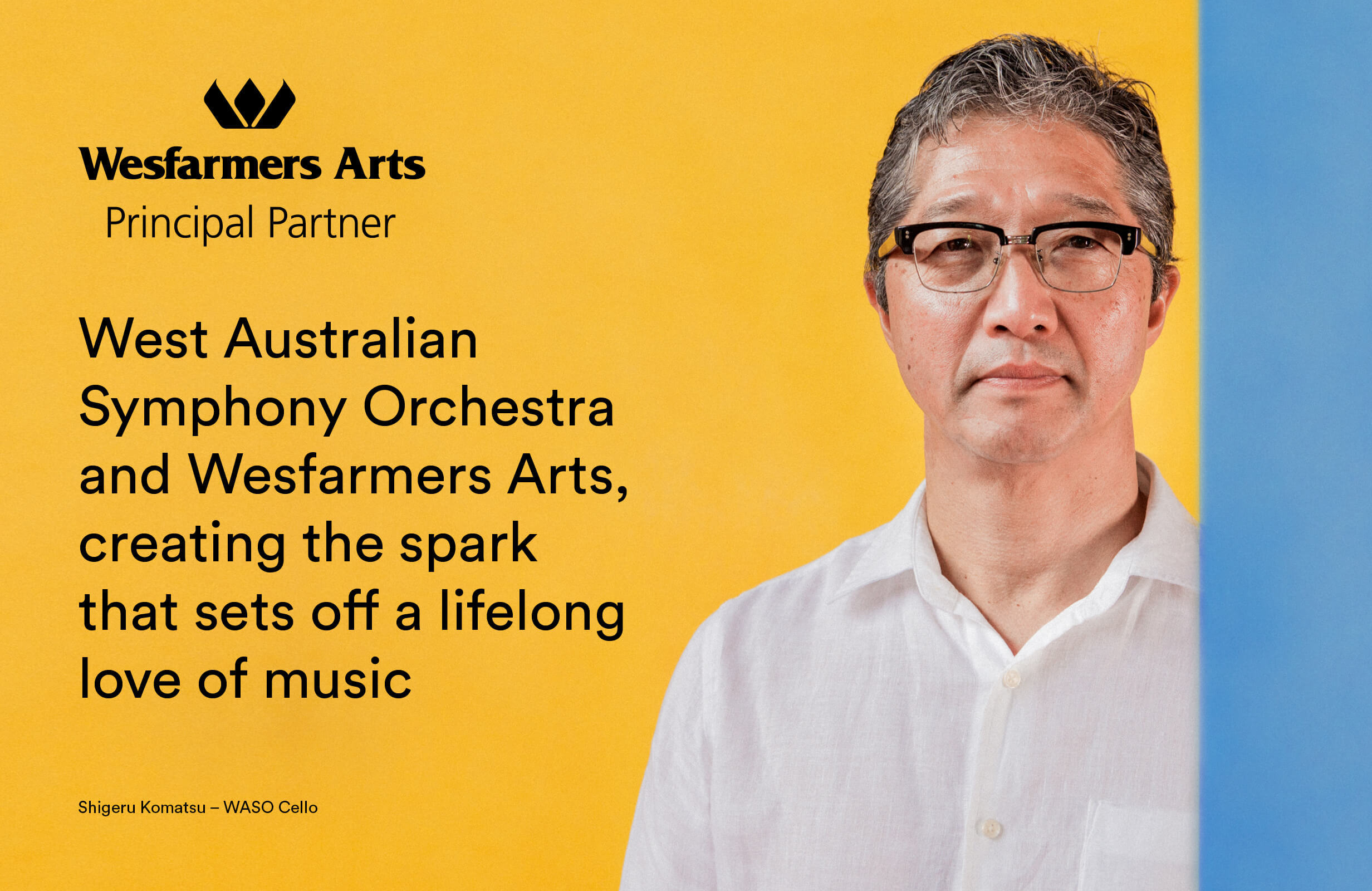Ahead of the world premiere performances of Nigel Westlake's Trumpet Concerto, we spoke with Nigel about his musical evolution, and what people can expect from the new composition.
Being surrounded by music growing up, do you think that had an influence on your relationship with music?
It had an incredible influence on me. My dad was Principal Clarinet for the Sydney Symphony Orchestra (SSO) and I was taken to concerts quite frequently, listening to him play concertos with the orchestra. I remember thinking “that is the coolest thing I’ve ever seen” and that’s what I wanted to do when I grew up.
I started learning the clarinet from him around 11 or 12 years old. I left school early to become a professional musician and he taught me intensively for a number of years. “As long as you practice 8 hours a day”. And I thought “Deal! Anything but school work!”
Dad would have ensemble rehearsals at home and was always playing, so there was always music in the background with mum also playing the violin. They were professionals; we didn’t play for recreation, it was preparing for the next gig.
My dad was strict about practice, but I was really into it and it drove my passion.
Working with orchestras as a composer, soloist and tutti clarinettist, you’ve been involved at every level of the orchestra. What is that like?
A composer, Richard Mills, initially talked me into conducting my own works. I was petrified at first but I grew to enjoy it - it’s been a big turnaround for me from being intimidated to being excited! My experience working with orchestras, playing with them, and writing for them has given an overview that I think is quite crucial to composition.
Particularly with my earlier composing work, I’d talk to the musicians and ask “what do you think about this?”, “is this playable?” and that was invaluable really. It’s had quite a big impact on the way I write music and the way I conduct; having that sense of communication with the players and getting their thoughts on the music.
I love that collegiality of working with the musicians and sharing the stage together. We’re all in this together and sharing the same goal.
You worked quite closely with WASO Principal Trumpet, Brent Grapes, when composing your new Trumpet Concerto; what surprised you about the process?
One thing I learnt about Brent is his contemporary approach to playing the trumpet.
The really great players of today create this warmer, unforced sound. In the past we’ve associated the trumpet with a harsh, ‘powerful’ type of sound. But these days, it’s capable of much more warmth and that is being developed around the world. It’s musical, warm, and welcoming and draws you in. It blends beautifully with other instruments and Brent was fantastic in explaining that to me. This idea is very relevant to the first and third movements; the slower, contemplative pieces that rely on the warmth and lyricism that comes with that approach to playing.
What do you think people should listen out for in this piece?
I’ve tried to cover a lot of ground musically. There’s high energy virtuosic music in there, low-key emotional vulnerability, soulful ideas, brass percussive ideas… and everything in between.
It moves through a lot of territory, so I hope it can create an environment where the listener can bring their own narrative and get lost in their own journey through the playfulness of the music.
Principal Trumpet, Brent Grapes, is generously supported by a Philanthropic Patron. Nigel Westlake’s Trumpet Concerto commissioned for WASO by Geoff Stearn and Janet Holmes à Court AC.
Image credit: Steve Forrest.

